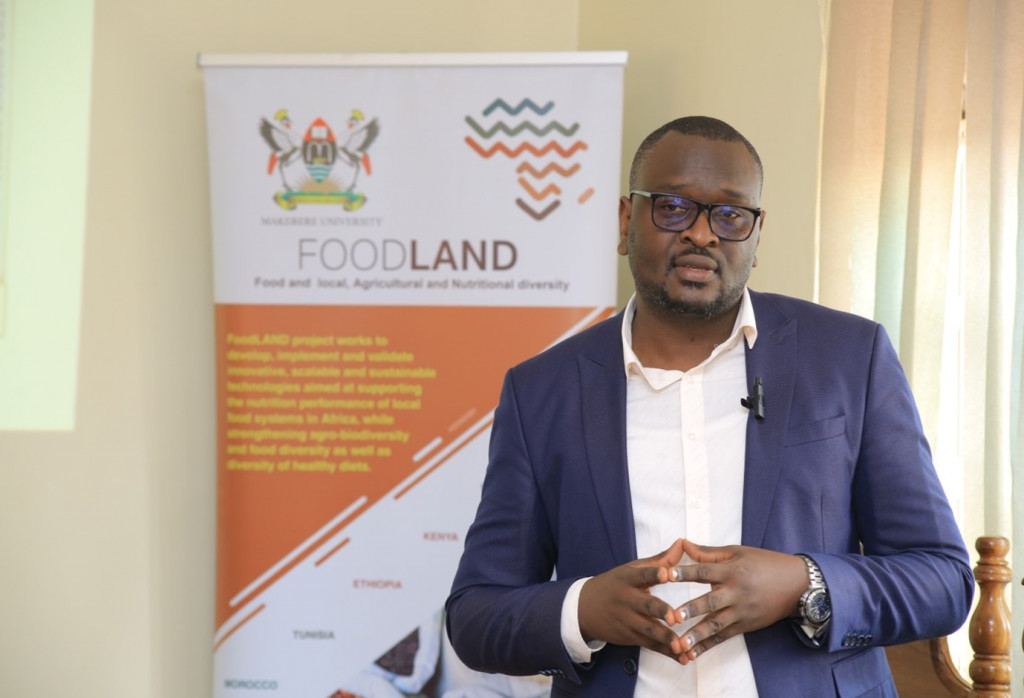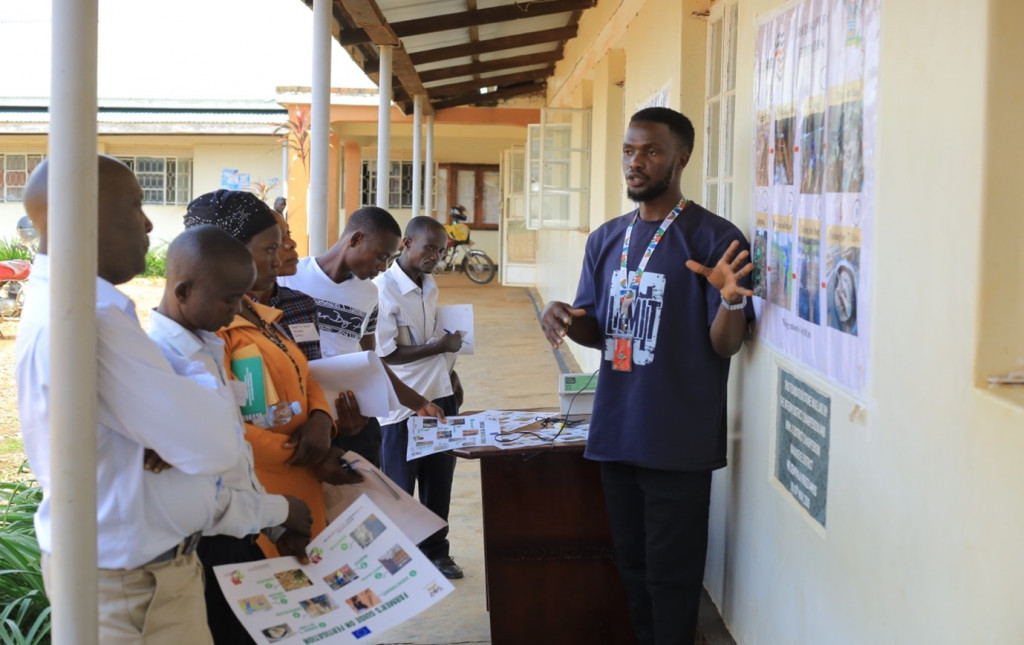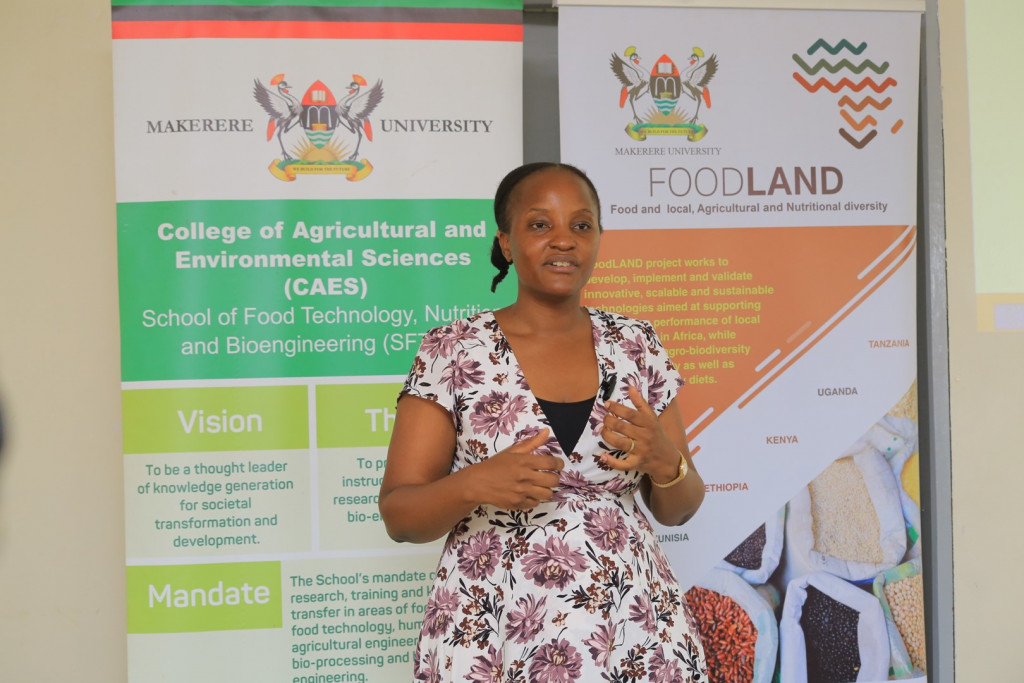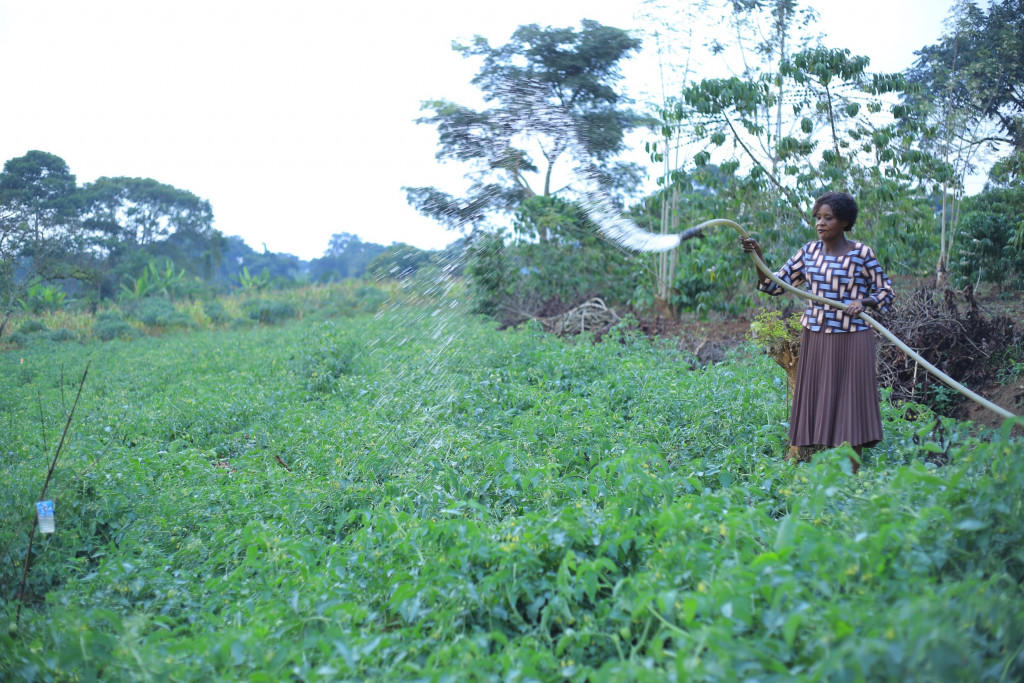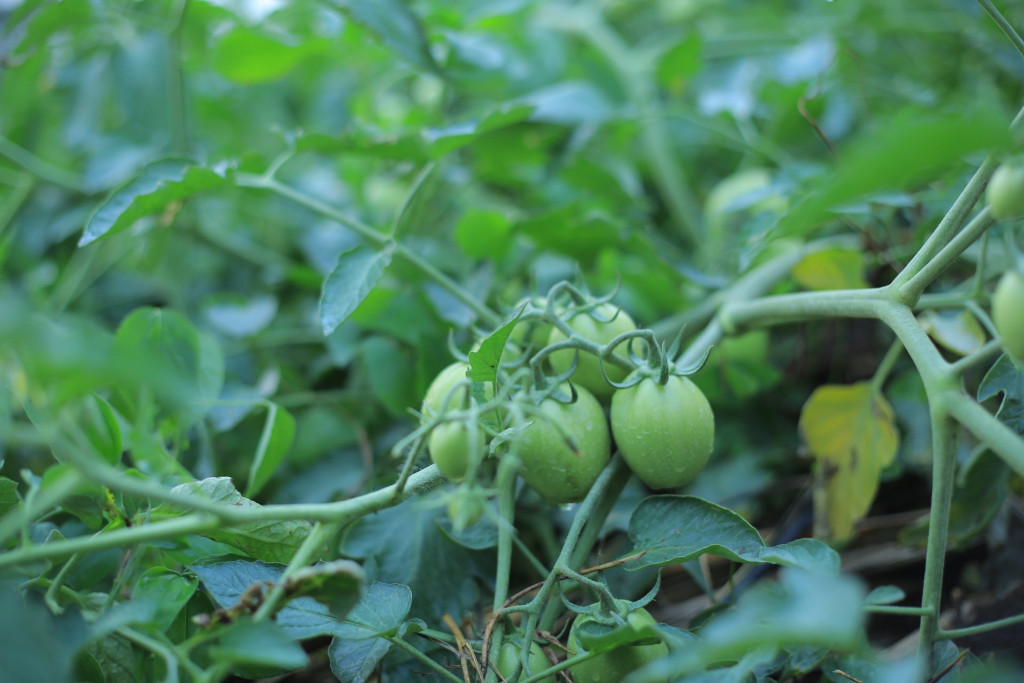FoodLAND spreads solutions for farmers and nutritional recommendations in Nakaseke, Uganda
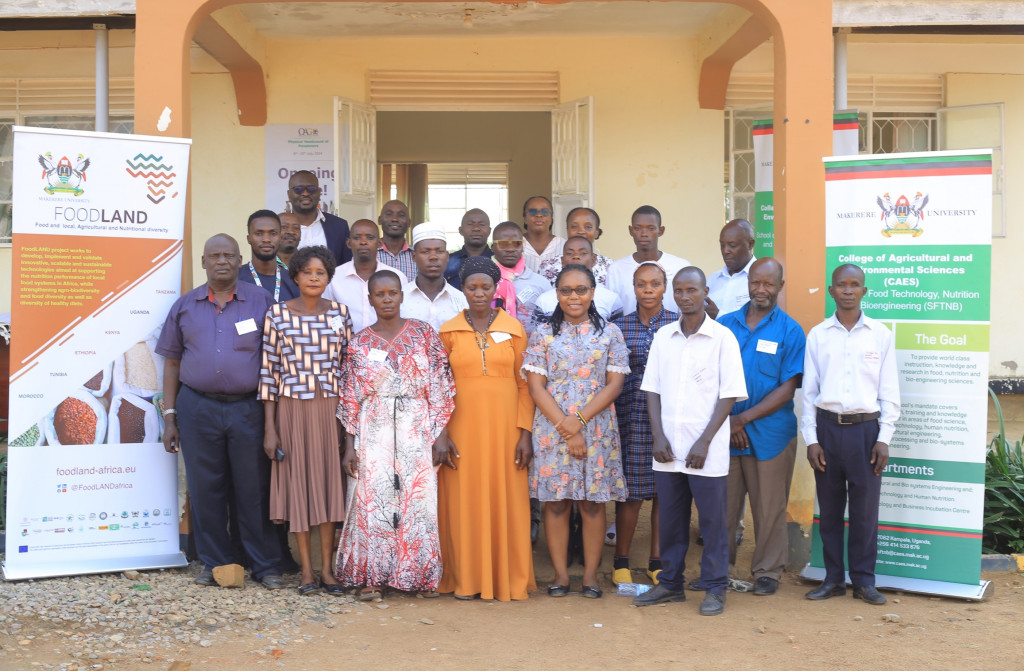
On 16 July 2024, the FoodLAND partners from the Department of Food Technology and Nutrition at Makerere University organised a workshop in the Nakaseke district to present the progress made by the FoodLAND project in this district and explain the agricultural technologies and novel products as well as the nutritional recommendations developed.
About 30 people attended the meeting, where together with FoodLAND partners, some district officials also contributed with their remarks. Rashidah Mutebi, the Town Clerk of Butalangu, emphasized the importance of adding value to farmers’ produce and sharing knowledge and ideas, stressing that all ideas are welcome, with no right or wrong. She advised farmers to document their progress and emphasized the importance of cooperation between farmers and researchers.
Dr. Aliga Simon, Nakaseke District Health Officer, addressed nutrition-related issues. He appreciated the FoodLAND project for including components to address non-communicable diseases mainly caused by lifestyle factors. He noted that Nakaseke is a food hub with nutritious food, but despite the availability of food, many people are suffering from malnutrition. Dr. Aliga stressed the importance of educating the community about food availability, as well as the role of farmers as the voices of the community. He suggested that the local government should select one day for the people of Nakaseke to exercise as a community. Furthermore, Dr. Aliga called for a partnership with FoodLAND to educate people in their communities and help them with issues related to malnutrition.
Wandera James, Deputy District Production and Management Officer, encouraged the youth of Nakaseke to work hard and engage in agricultural activities. At the same time, he addressed the challenges faced by the farmers, such as limited market access due to the perishable nature of the crops they grow, for example, eggplants. However, due to FoodLAND’s efforts, eggplants can now be solar-dried and stored for up to two years, demonstrating the concept of value addition.
Muhoozi Michael, Deputy Resident District Commissioner: He requested FoodLAND to collaborate with a farm in Katooke where only organic foods are grown, to ensure the sustainability of nature-sustaining agricultural practices after the conclusion of FoodLAND project activities. He stressed the need to educate farmers on using everyday solutions to address pests and diseases and strengthen the voice of the farmers, thus urging farmer groups to form a cooperative.
FoodLAND partners Baraka Price and Amos Asiimwe/Julius Byamukama offered the presentation of technological innovations and novel food products produced in the project, such as precision irrigation and fertigation systems, precision harvesting systems, and solar drying.
The session about nutritional recommendations was presided by Josephine Kisakye. She advised eating a variety of locally available foods from all main food groups, limiting processed meat, red meat, and full-fat milk. Encouraged farmers to stay healthy, mind their nutrition, leave some of their farm produce for their home consumption and not sell everything.
Statements by a FoodLAND participant
Ms Jane Nakya, a farmer who received training from FoodLAND, installed an irrigation system at her farm. She always had poor harvests due to drought, but after the training, “I was motivated to install an irrigation system at my farm. Luckily I went to the district offices and found an ongoing irrigation project with a matching grant. I was asked to pay just 25% of the costs and the government pays 75%. I paid the money, and the system was installed on my farm. For now, the system feeds 2.5 acres of my farm. The biggest advantage is that I am no longer affected by drought”.
